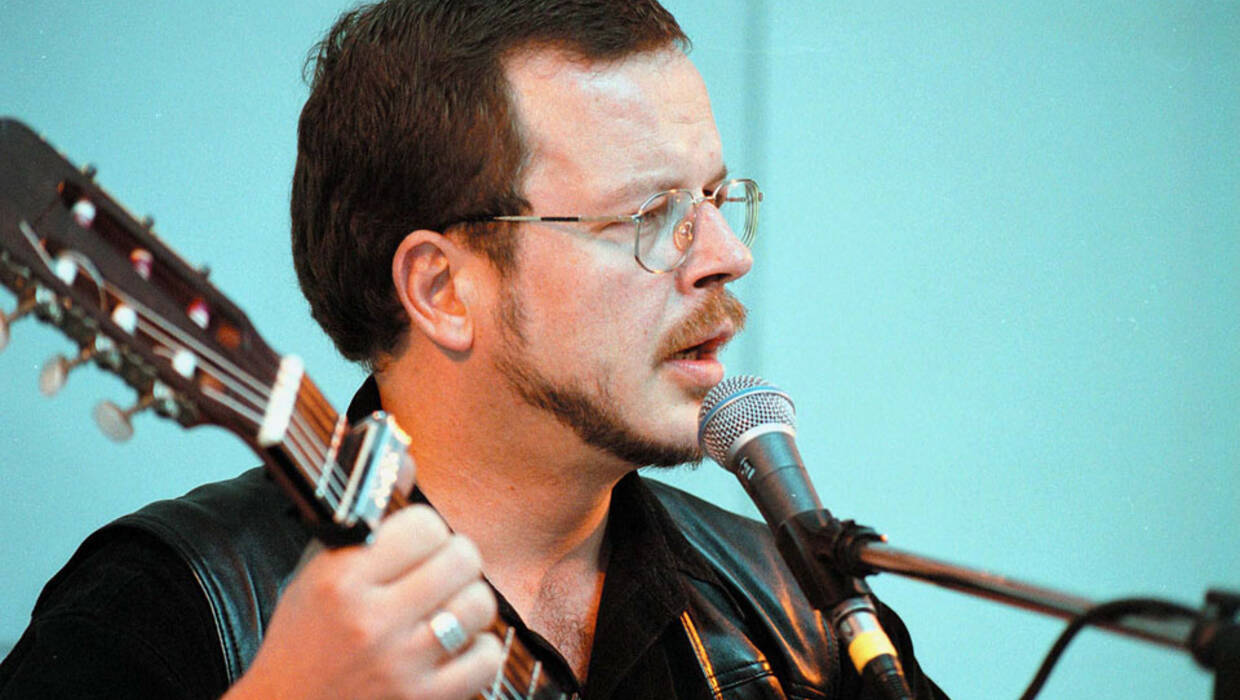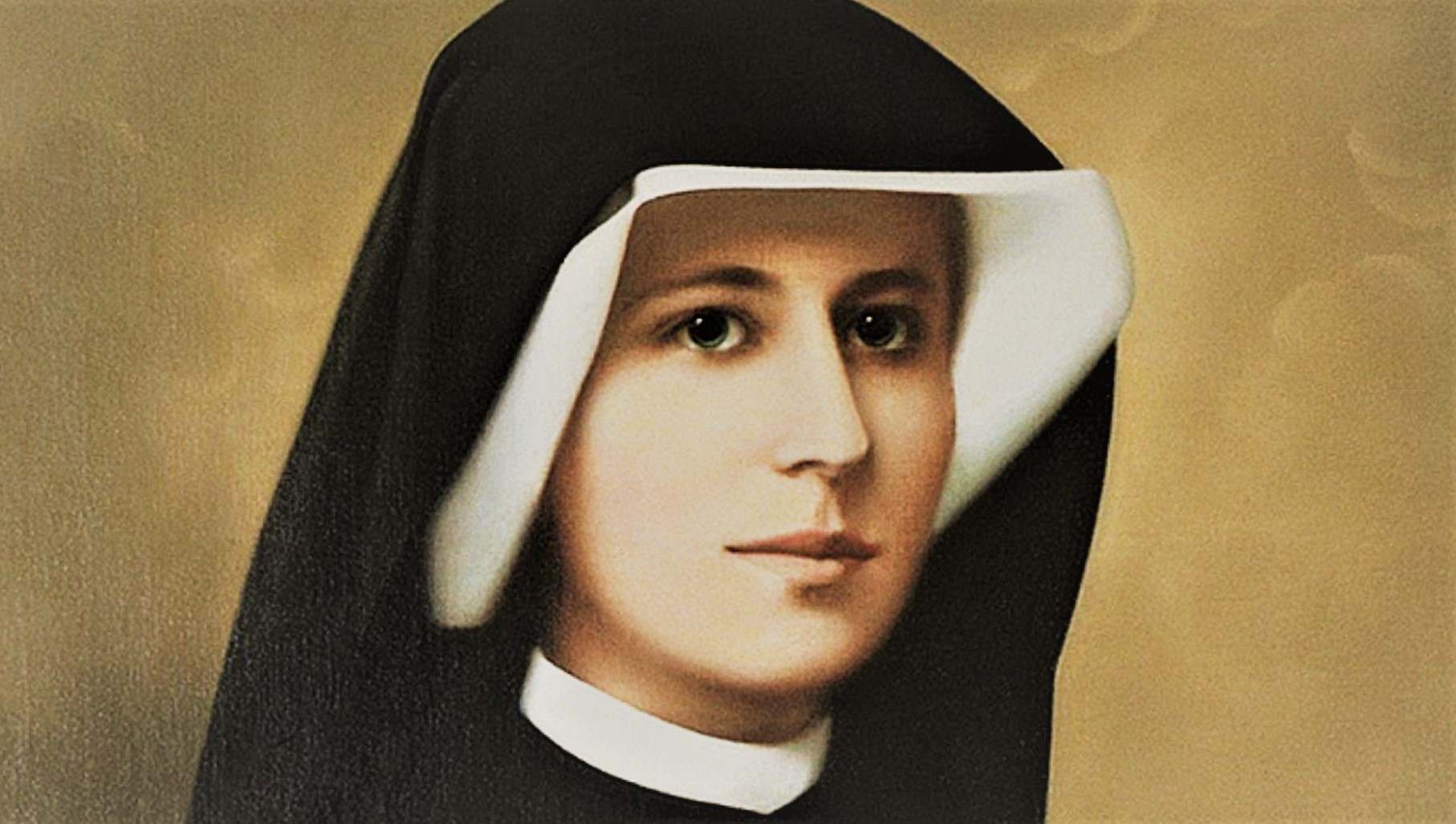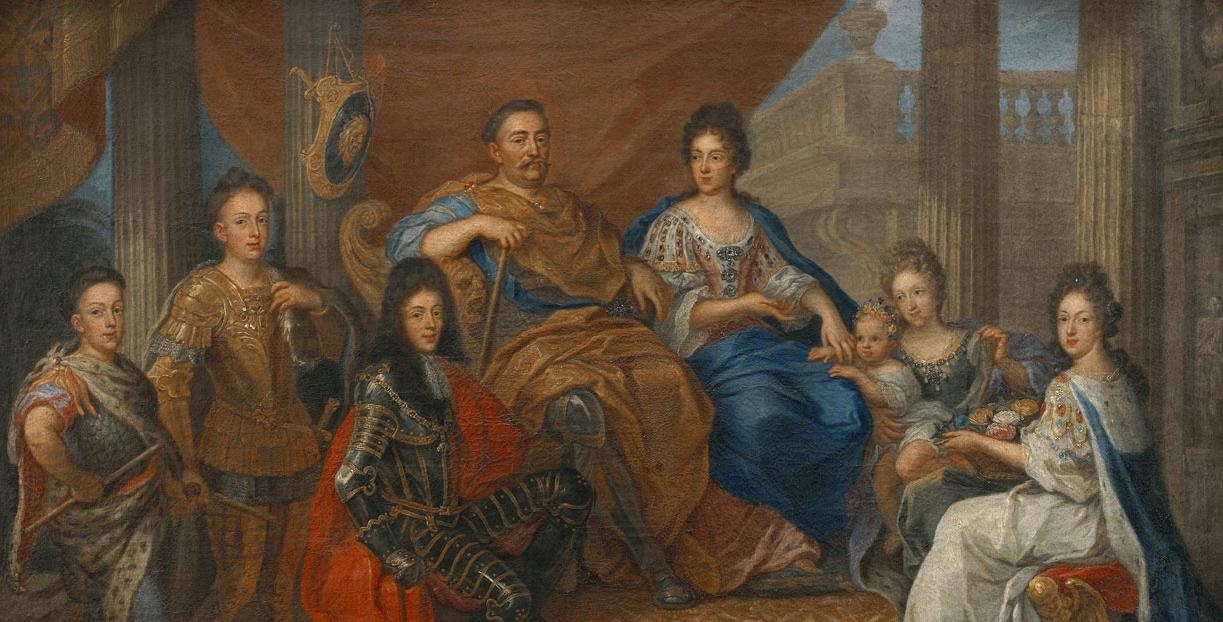In the 1980s and 1990s, his songs were known and sung by everyone in Poland. His song “Walls” became the anthem of Solidarity and a symbol of the struggle against the communist regime. Jacek Kaczmarski was not just a “bard of the opposition” but also a charismatic poet, prose writer, and composer.
by Jan Hlebowicz
Without Grandma Felicja, there might have been no music from Kaczmarski. She was the one who forced seven-year-old Jacek to play the piano, which, as he admitted much later, he honestly hated. Nonetheless, he consented to attend a music center, and later, he took private lessons and eventually studied at a music school. He had only one condition – in exchange for fulfilling his grandmother’s wish, he would receive a guitar. And so, Kaczmarski combined studying the piano with learning guitar chords. He quickly created his own technique of playing the instrument as he unconsciously held the guitar upside down, even though Kaczmarski himself was not left-handed. However, Kaczmarski did not change the arrangement of the strings on the neck. Thus, he had to perform chords differently, which, as the singer himself noticed over time, gave some chords a specific sound.
He had neither an outstanding voice nor any particular musical talent. However, he was unusually sensitive, which helped him capture complex problems in a concise and colorful form and read universal motifs in past events and works of European culture. As a result, Kaczmarski’s work is characterized by multi-layered metaphors and numerous word games, which make it challenging for his works to be translated into foreign languages.
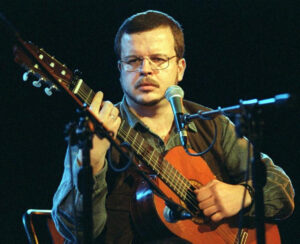
This is the role for me
He attended the renowned 15th Secondary School in Warsaw. It was then that he started writing his first songs – inspired by the works of Georges Brassens, Bob Dylan, Wojciech Młynarski, Bulat Okudzhava and Vladimir Vysotsky. It was the Russian bard who most influenced Kaczmarski’s work. “Watching him [Vysotsky] ‘live’ for the first time, I realized the impression made by a face full of the utmost effort and expression when the artist produces this extraordinary voice. I thought to myself: this is the role for me; I want to experience what I do in the same way,” he recalled. While participating in Vysotsky’s private concert at the Warsaw home of director Jerzy Hoffman, the young poet heard the song “Hunting for Wolves.” Shortly afterwards, he wrote his own version – “Obława,” one of his most recognizable songs. During his high school years, Kaczmarski wrote several songs that are still known to this day: “Wędrówka z cieniem” [Wandering with the Shadow], “Przypowieść o ślepcach” [Parable of the Blind] (based on the painting by Pieter Bruegel the Elder), and “Oblężenie” [The Siege] which was stopped by communist censorship in 1978. Kaczmarski, inspired by Witold Gombrowicz, also attempted to write his first novel entitled “Szkoła korków” [School of Corks], which was supposed to be a rebellion “against treating young people as pieces of cork floating in the water.”
Grandma persuades her grandson
In 1975, Kaczmarski began studying Polish literature at the University of Warsaw. “He was inspired by everything he noticed. The trivial things happening around us that seemed to go unnoticed could have been extremely important to Jacek. He observed people and even provoked some things, such as “Hymn wieczoru kawalerskiego” [Bachelor’s Party Hymn] written for Stasiek Ledóchowski’s bachelor party […] in which we all took part,” recalled Kazimierz Wojtaniec, Kaczmarski’s friend from that time. He was writing and composing all the time. One day, Grandma Felicja came across an advertisement in the press about the qualifying rounds for the Student Song Festival. She persuaded her grandson to try his hand at it. Kaczmarski presented the songs “Przybycie tytanów” [The Arrival of the Titans], “Przedszkole” [Kindergarten], and “Obława” [Hunting]. He qualified for the finals in Krakow, where he received the first prize. The victory opened the door to his further career – from that moment on, he began to be regularly invited to concerts. “We received, I think, PLN 150 for a recital, which was practically enough for a meal, but the number of these concerts and the certain awareness that we were reaching a very large number of people was a reward for the artist,” he said years later. Shortly afterwards, Kaczmarski received an invitation from Jan Pietrzak and started cooperation with the “Pod Egidą” cabaret. He also began creating together with Przemysław Gintrowski and Zbigniew Łapiński, whom he met at the festival.
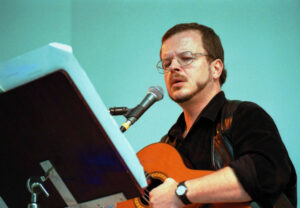
Together, they created songs with a deep lyrical layer complemented by a harmonious melodic line and sometimes complicated piano arrangements. The musical style was, therefore, illustrative for the text. “We had one lyricist – Jacek. He was the undeniable leader of the group. And there were three composers […]. Jacek brought a dozen or so of his texts, and we had to write music for them. And since there were three composers and a dozen or so texts, Jacek read some of them; we read some of them together [and] it was called a rehearsal of the program,” Zbigniew Łapiński said years later. “Perhaps it is a matter of temperament or the Aries sign in the zodiac, i.e., individualism and impatience. But if I was brought up to be a man among people, I was brought up to be one with a leadership character,” Kaczmarski himself admitted.
The bard of Solidarity?
In 1980, at the 18th National Festival of Polish Song in Opole, they performed the song “Mury” [Walls] together to the tune of the song “L’Estaca,” composed in 1968 by the Catalan singer Lluís Llach. Contrary to Kaczmarski’s intentions, the song immediately became the anthem of “Solidarity” and a symbol of the fight against the communist regime. Workers sang it during the August strikes, and its refrain became the signature tune of Radio Solidarity. “I wrote ‘Walls’ […] as a song about distrust of all mass movements. I heard a recording by Lluís Llach and a crowd of thousands singing, and I imagined a situation – as an egoist and a person who values individualism in life – that someone creates something very beautiful because it is beautiful music, a beautiful song, and then he is deprived of his work because people pick it up. The work ceases to be the property of the artist, and that is what “Walls” is about. And this ballad foretold itself. It became an anthem, a people’s song, and it stopped being mine,” Kaczmarski claimed. The artist also believed that the song’s chorus was moving: “Tear out the teeth of the bars from the walls, break the shackles, break the whip! And the walls will fall, fall, fall, and bury the old world,” was understood the other way around. “And what happened later with the song, its popularity during the period of ‘Solidarity,’ during martial law, is a kind of confirmation of its content. It wasn’t me who cried out ‘tear out the teeth of the bars’ from the walls, but rather I was the singer who is left alone, and the song, taken from me, works for the audience,” he emphasized. “When the song is ready and you decide to sing it in public, at that moment, you no longer have any control over the work. It is being given back,” he added.
Regardless of his intentions, Kaczmarski began to perform intensively during subsequent strikes and protests. He was hailed as the “bard of Solidarity.” Although he later defended himself against this term, he not only sympathized with the first Solidarity but even became a member. Years later, he admitted that it was mainly about freedom of speech, and joining the union was, for him, a demonstration of opposing the system. On the other hand, Kaczmarski did not give up on performances organized by state entities and organizations. As Anna Grazi wrote, the “bard of Solidarity” signed a contract for several dozen concerts with the Union of Polish Socialist Youth, and from concert to concert, he traveled in a black Volga truck borrowed from the Central Committee of the Polish United Workers’ Party.
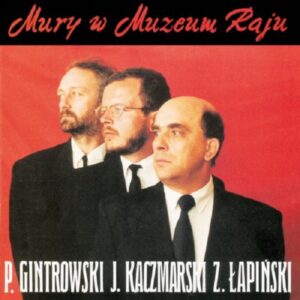
He was extremely talented
In 1980, after “Walls,” Kaczmarski, Gintrowski, and Łapiński presented another program – “Paradise” with a biblical theme. The next series – “Museum,” contained texts inspired by Polish historical paintings, including ones by Jacek Malczewski – a painter beloved by Kaczmarski. The painting and biblical motifs used by the musician turned out to be, in the opinion of many, the most mature in his entire body of work. The poetic reading of these motifs, accompanied by a distinct, carefully selected melodic layer, undoubtedly enlivened the old works and made the audience reflect on European culture. It also showed how he was searching in his personal life – Kaczmarski, although raised in an atheistic family, constantly asked questions about the meaning of faith. He argued with God throughout his life, as can be seen in many of his works. Years later, together with Gintrowski and Łapiński, they even recorded a well-received album containing a dozen or so original carols and pastorals.
On December 13, 1981, when Wojciech Jaruzelski announced martial law, Kaczmarski was on a concert tour in France organized by left-wing trade unions. He decided not to return to the country. “He later admitted that it was a shock for him and that after receiving the news, he and Andrzej Seweryn cried. On that day, Kaczmarski went to the Polish embassy in Paris, where, as he later described in the novel “Self-portrait with a Scoundrel,” he hung himself on the gate and shouted “Fascists, Gestapo” – wrote Anna Grazi. The poet quickly became involved in the work of the Paris Solidarity Support Committee. He also started performing for the Polish community, devoting part of his profits to supporting the underground in Poland. In 1982, he began collaborating with Radio Free Europe. Jerzy Gierdoyc protégéd him to Zdzisław Najder, the head of the Polish section of the radio station. For the next two years, Kaczmarski sent RWE correspondence from his travels around the world, and at the beginning of 1984, he was offered a permanent job. He became a member of the editorial staff of Radio RWE Polska, hosted the program “A Quarter with Kaczmarski,” and wrote political commentaries for the main news “Facts. Events. Opinions.” He also prepared some editions of “Panorama of the Day.” “He spoke [several] languages very well and had a natural gift for concisely approaching a topic. Undoubtedly, the rigors of editorial work were difficult for him to accept, which led to conflict. He was extremely talented in many areas,” Najder said. Kaczmarski worked at RWE until 1994, when the Polish section of the radio was liquidated. During this time, he was constantly creating and recording. The songs were recorded in three programs – “Kosmopolak,” “Dzieci Hioba” [Hiob’s Children], and “Głupi Jasio” [Stupid Jasio].
He got up at 6 a.m. and sat down to write
In the first half of the 1990s, Kaczmarski often stayed and gave concerts in Poland. “He loved the audience who, especially in times of change, treated his performances as political manifestations. He was able to go to a concert with 10 people in the room. He drove there and sang for two hours,” said Przemysław Gintrowski. The Kaczmarski-Gintrowski-Łapiński trio collaborated on the albums “Wojna postu z karnawałem” from 1993 and “Sarmatia,” released a year later. The first one was a creative approach to the reality in Poland during the political transformation, including disputes in the ruling camp, through the prism of the works of modern painters and turbulent (often not evident in this context) events in the history of Europe. The title “The Fight Between Carnival and Lent” is, therefore, the use of a painting by the Dutch painter Pieter Bruegel to illustrate the conflict between Lech Wałęsa and Tadeusz Mazowiecki. “Sarmatia,” in turn, talks about the history of pre-partition Poland, its moments of glory and those less glorious [moments as well], which it strongly condemned. The past was supposed to be a signpost and, at the same time, a warning lesson for contemporaries.
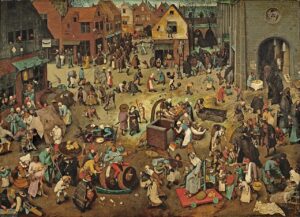
“He worked always and everywhere. On trips, he would get up at 6 a.m. and sit down to write,” Gintrowski emphasized. In 1994, Kaczmarski published his first novel – “Autoportret z nakalią,” telling the story of two students of Polish literature in Warsaw – Daniel Błowski and Jacek Kaczmarski – involved in opposition activities. “I tried to include in this book, apart from the literary convention, a whole set of my most private failures and experiences. I must admit, I wasn’t sure if this was really the path that would lead to self-liberation from all past burdens and to reimagining myself in a completely new way,” he explained. A year later, he and his family decided to settle in Australia, near Perth. Shortly before his departure, he gave an interview to Grażyna Preder, which was published as a book “Farewell to the Bard.” In it, he mentioned, among other things, his Jewish origins, struggles with alcoholism, and contacts with women. He said about his creative work during this period: “I have done more in the last five years than in the previous twenty. Australia has a soothing effect and provides the distance necessary for writing. I didn’t leave to write songs about Aborigines, which is what people sometimes expect from me, but to look at Europe from there. Australia is the only dream in my 40 years of life that has survived. It became a place for me where I could create intellectually and in the conditions I wanted. There, my work ceased to be a reaction to what the world brings and became a search for, or an extraction from myself, of what is most important, what is lasting, and not opportunistic or related to political contexts.”
In 2001, the poet celebrated the twenty-fifth anniversary of his creative work, which he commemorated with the album “Twenty (5) Years Later,” the title also referring to the twenty anniversary of “Solidarity.” A year later, he was diagnosed with advanced-stage esophageal cancer. Kaczmarski decided to undergo expensive and complicated therapy in Austria, believing that he would avoid surgery that would permanently damage his vocal cords. He had to undergo a tracheostomy procedure, and in early 2004, he completely lost his voice. Only on his deathbed was he baptized. After two years of fighting the disease, Kaczmarski died in one of the hospitals in Gdańsk on Holy Saturday, April 10, 2004.

